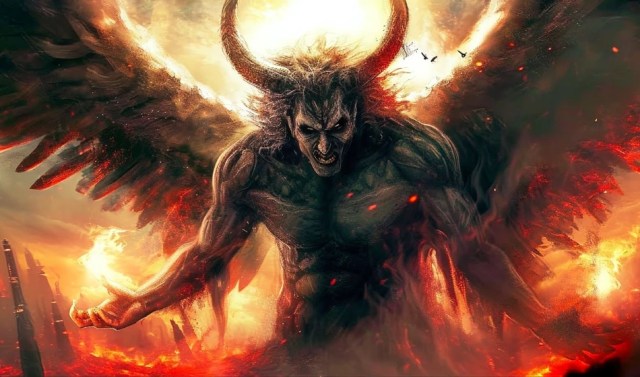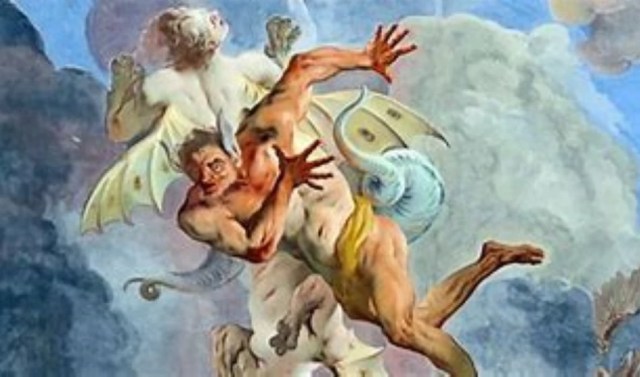Fallen Angels and Their Existence on Earth: A Comprehensive Exploration

Fallen angle
The concept of fallen angels descending from grace has been a topic of discussion for many centuries. Each religious and cultural tradition has its own vision of the angels and their destiny on our planet. Their extraordinary origin: these once-celestial beings of light were deemed wicked and cast out of heaven before residing on Earth. Below, we wander through the maze of the Fall Star stories, where myths and legends thrive to describe angels’ mysteries. We entice diversely. Whether a story of ancient text or modern interpretations. To weave the intricate lore of darkened celestials. Which can also be regarded as puzzling evidence of their earthly impact in terms of human culture and imagination.

Origins of Fallen Angels
The concept of fallen angels is firmly rooted in Abrahamic religions, specifically Christianity and Judaism. The rebellious watchers are angels who become entangled in the tale of descending to earth and falling in love with human women, defying the divine order.
In the Book of Enoch, Satan was the first angel to rebel against heaven, causing his expulsion and that of other angels from the heavenly realm.
In Islamic tradition, it is believed that Iblis, Satan’s equivalent, was expelled from the Garden of Eden due to his refusal to prostrate himself to Adam, the first man. Other civilizations, such as ancient Mesopotamia and Greece, possess narratives that recount the expulsion of deities from the celestial realm as a consequence of their defiance or hubris.
Characteristics of Rebellious Seraphim
Depicted as celestial beings with a rebellious streak, Seraphim were once revered for their magnificence but have since succumbed to pride, lust, or the insatiable thirst for power.”They are powerful, know everything, and are very attractive. Most mortals desire to be with them. These rebellious angels reportedly conversed with humans about a wide range of skills, including metallurgy, cosmetics, the occult, and magic.
According to the Judeo-Christian tradition, the fallen angels are the ones who have lost their divinity and have transformed into demonic entities. They are sometimes referred to as demons or devils. They are the complete opposite of the good, obedient angels, who are always on God’s side. The fallen angels are believed to have the power to tempt and seduce humans, leading them astray from the path of righteousness.
The Implications of The Exitance of Darkened Celestials
The idea of fallen angels has profound theological implications. Mostly in the context of the problem of evil and the concept of free will. The fact of the dark celestials contradicts the idea of an omnipotent and omnibenevolent God. Because then there is a supernatural power that can resist divine authority. And cause disorder in the universe by introducing evil.

To defend this, theologians have proposed different theodicies, or reasons for evil, that include the notion of fallen angels. Others say that the fallen angels willfully revolted against God. That is the actual reason for the presence of natural and moral evil in our world. Still, others theorize that the fallen angels are tools that God uses to probe and test the faith of His followers. Or that they are required to preserve the equilibrium between good and evil.
The Influence of Fallen Angels on Culture and Society
The concept that fallen angels have forever left their imprint on the culture and society of mankind is one of the most imperative and enduring. Fallen angels frequently appear in literature, fine art, and popular culture, portrayed as intricate and introspective figures. They encapsulate the human battle with temptation, pride, and purpose. These characters are multi-dimensional, self-contained, and often filled with sorrow.

Fallen angels in literary and cultural works embody complexity and symbolize the human battle with temptation, pride, and purpose. They have contributed to the formation of widespread beliefs in the supernatural’s power to determine humanity.
Fallen Angels in Other Traditions
The idea of darkened celestials is most common in the Judeo-Christian tradition. But it has also found expression in other religious and cultural traditions. In Islamic tradition, Iblis, the devil, who refused to bow down to Adam, is usually represented as an angel or a jinn. He defied God’s command. Furthermore, Gnostic and esoteric magic relate darkened celestials to symbolic representations of the world. Humans struggle to transcend the material realm to achieve spiritual enlightenment.
While interpretations may differ from culture to culture and from one religion to another, the fallen archetype of angels stands as a universal symbol and a powerful tool of communication with human souls.
By exploring various manifestations of rebellious seraphim, we uncover the complex interplay between divine entities and demons, shedding light on the essence of human existence.
The Search for Fallen Angels in Today’s World.
There is a growing interest in studying these mysteries. Some researchers believe that aliens could be advanced beings or malevolent entities disguising themselves as humans. They may be trying to manipulate us without our knowledge. Some scholars think banished celestials could have been extraterrestrial or multidimensional beings. There is a link between ancient myths and modern UFO studies.
Conclusion
The stories of fallen angels and their connection to human life have captivated people for centuries, spanning cultures and belief systems. From celestial beings to malevolent spirits, these tales of disobedience and forbidden knowledge continue to intrigue those drawn to the unknown.
As time proceeds, we’ll unravel the deep amusements and mysteries of the supernatural, human curiosity, and the eternal quest to uncover the hidden beyond the physical world. These rebellious seraphim serve as timeless themes, piquing people’s interest and challenging them to think deeply about issues that have been a significant part of human existence for centuries. Whether viewed as cautionary tales or tools for personal growth, they offer a unique perspective on life from every angle.
References:
- Fallen Angels | The Jewish Publication Society (jps.org)
- https://www.goodreads.com/topic/show/17447247-fallen-angels
- https://vocal.media/geeks/fallen-angels-xuhc0p7u






